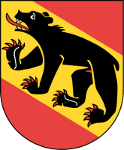UK Government speaks of open standards and ODF
![]() On Wednesday the UK’s Government Digital Service (GDS) held an event called Sprint 14, in which it invited Ministers, civil servants, suppliers and the media along to showcase some major new digital public services for the first time.
On Wednesday the UK’s Government Digital Service (GDS) held an event called Sprint 14, in which it invited Ministers, civil servants, suppliers and the media along to showcase some major new digital public services for the first time.
Among the speakers was Cabinet Office Minister Francis Maude, who in his speech made some interesting and welcome noises about document formats:
Today I can announce that we’ve set out the document formats that we propose should be adopted across government – and we’re asking you to tell us what you think about them.
He then continued with equally welcome and interesting noises on open standards:
Technical standards for document formats may not set the pulse racing – it may not sound like the first shot in a revolution. But be in no doubt: the adoption of open standards in government threatens the power of lock-in to propriety vendors yet it will give departments the power to choose what is right for them and the citizens who use their services.
The documents formats referred to by Mr Maude in his speech can be found on the Cabinet Office’s Standards Hub section of its website on the Sharing or collaborating with government documents webpage, which states
When dealing with citizens, information should be digital by default and therefore should be published online. Browser-based editing is the preferred option for collaborating on published government information. HTML (4.01 or higher e.g. HTML5) is therefore the default format for browser-based editable text. Other document formats specified in this proposal – ODF 1.1 (or higher e.g. ODF 1.2), plain text (TXT) or comma separated values (CSV) – should be provided in addition. ODF includes filename extensions such as .odt for text, .ods for spreadsheets and .odp for presentations.
Whilst the government has conceded that open formats and standards should be used when dealing with citizens, how long will it take for changes to take place before editable documents intended for use by we peasants citizens will be available in anything other than the quasi-ubiquitous MS Office formats currently provided?

 With a massive majority of 130 in favour, 0 against and one abstention, the Grand Council (Grossrat), the parliament of the Canton of Bern, has passed the motion “To exploit synergies when using software in the Canton of Bern”,
With a massive majority of 130 in favour, 0 against and one abstention, the Grand Council (Grossrat), the parliament of the Canton of Bern, has passed the motion “To exploit synergies when using software in the Canton of Bern”,